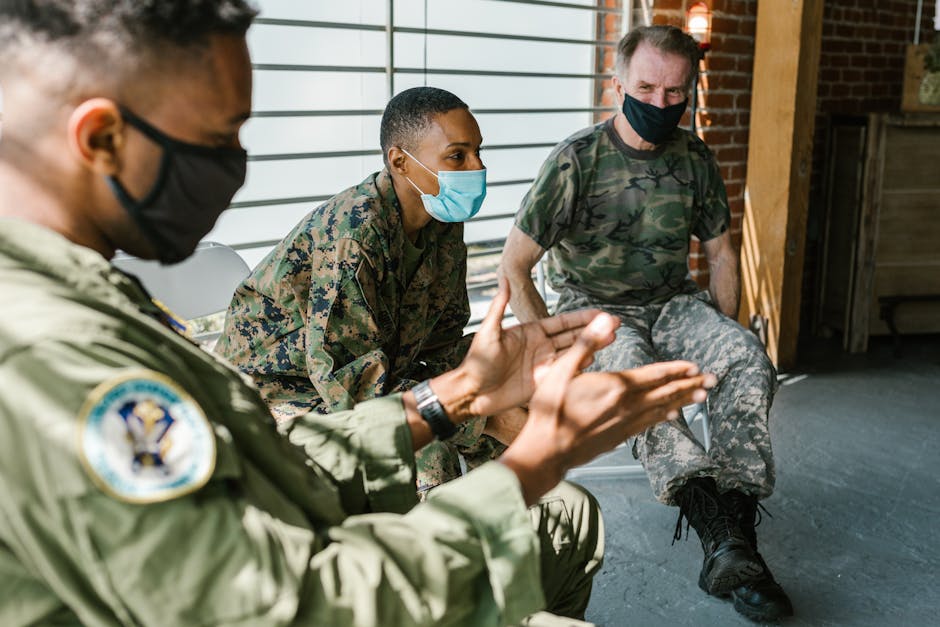The Role of Peer Mentoring in Mental Health Recovery
Mental health recovery is a journey, often filled with ups and downs. One of the key elements that can make a significant difference is peer mentoring. In this blog post, we’ll explore how peer mentoring plays a crucial role in mental health recovery, providing support, understanding, and a sense of community.
Table of Contents
1. Introduction
2. What is Peer Mentoring? ?
3. Benefits of Peer Mentoring in Mental Health Recovery ?
4. How to Start with Peer Mentoring ??
5. Conclusion
6. FAQ: Your Questions Answered
What is Peer Mentoring? ?
Peer mentoring involves individuals with similar experiences supporting each other. In the context of mental health, this means people who have faced similar challenges offering guidance, support, and encouragement to those currently navigating their recovery journey. It’s about shared experiences and mutual understanding, creating a bond that professional therapy alone might not achieve.
Benefits of Peer Mentoring in Mental Health Recovery ?
Peer mentoring offers numerous benefits that can help in mental health recovery:
1. Emotional Support
Having someone who truly understands what you’re going through can be incredibly comforting. Peer mentors provide a safe space to express feelings without fear of judgment.
2. Shared Experiences
Learning from someone who has faced similar struggles can offer hope and practical advice. It’s reassuring to know that others have walked the same path and emerged stronger.
3. Building Confidence and Skills
Peer mentoring can help build confidence by setting achievable goals and celebrating small victories. It also promotes the development of coping strategies and life skills that are vital for recovery.
4. Community and Belonging
Being part of a supportive community reduces feelings of isolation. Peer mentoring fosters a sense of belonging, reminding individuals that they are not alone in their journey.
How to Start with Peer Mentoring ??
If you’re interested in finding or becoming a peer mentor, here are some steps to get started:
1. Research Organizations
Look for local or online organizations that offer peer mentoring programs. Reach out to mental health charities, community centers, or online forums dedicated to mental health support.
2. Set Clear Expectations
Whether you’re seeking a mentor or becoming one, it’s important to establish clear expectations. Discuss goals, boundaries, and the frequency of meetings to ensure a mutually beneficial relationship.
3. Training and Support
Engage in training programs if available. Many organizations offer training for peer mentors to equip them with the necessary skills to support others effectively.
Conclusion
Peer mentoring can be a transformative experience in mental health recovery. It offers a unique blend of empathy, shared experience, and practical support that can empower individuals on their journey to wellness. Whether you’re looking to find a mentor or become one, the potential benefits make it a valuable component of mental health recovery.
FAQ: Your Questions Answered
1. How do I find a peer mentor for mental health recovery?
Start by reaching out to local mental health organizations, community centers, or online support groups. They often have resources or can guide you to peer mentoring programs.
2. Can I be a peer mentor if I’m still on my recovery journey?
Absolutely! Many programs encourage individuals at various stages of recovery to become mentors. Your experiences can offer valuable insights and support to others.
3. What if my peer mentoring relationship isn’t working out?
It’s okay if a mentoring relationship doesn’t work as expected. Open communication is key. Discuss your concerns, and if necessary, explore other mentoring options that might be a better fit.
Remember, you’re not alone on this journey. Whether you’re seeking guidance or ready to offer it, peer mentoring can be a powerful tool in mental health recovery. ?
For more information please click here
James Donaldson is a Washington State University graduate (’79). After an outstanding basketball career with WSU, he went on to play professional basketball in the NBA with the Seattle Supersonics, San Diego/L.A. Clippers, Dallas Mavericks, New York Knicks, and Utah Jazz. He also played for several teams in the European Leagues in Spain, Italy, and Greece, and he toured with The Harlem Globetrotters to wrap up his career. James was an NBA All-Star in 1988 while playing center for the Dallas Mavericks. In 2006, James was inducted into the Pac-10 Sports Hall of Fame and also the Washington State University Athletic Hall of Fame. In 2010, James was elected as a board member for the NBA Retired Players Association.
James frequently conducts speaking engagements (motivational, inspirational, educational) for organizations, schools, and youth groups.
In 2010, James was the recipient of the NBA Legends of Basketball ABC Award, awarded for outstanding contributions in Athletics–Business–Community.
He believes in being a role model for success and professionalism to the scores of young people to whom he devotes so much of his time. He currently serves on several boards and committees and is a member of many organizations.
James believes in developing relationships that create a “Win-Win” environment for everyone involved, and in being the best he can be!
For more information about James Donaldson or to request he speak at your event, contact him at:
www.StandingAboveTheCrowd.com
[email protected]
1-800-745-3161 (voicemail & fax)
James Donaldson is the author of “Standing Above The Crowd” and “Celebrating Your Gift of Life” and founder of the Your Gift of Life Foundation which focuses on mental health awareness and suicide prevention, especially pertaining to our school aged children and men.
If you’re interested in having James come and speak to your group of young adults, business entrepreneurs, aspiring political and community leaders, and athletic teams, please contact him at [email protected] and or leave a personal message for him at 1-800-745-3161. Keep up with him and read about how he is reaching out and making a difference in the lives of so many around the world at www.yourgiftoflife.org




